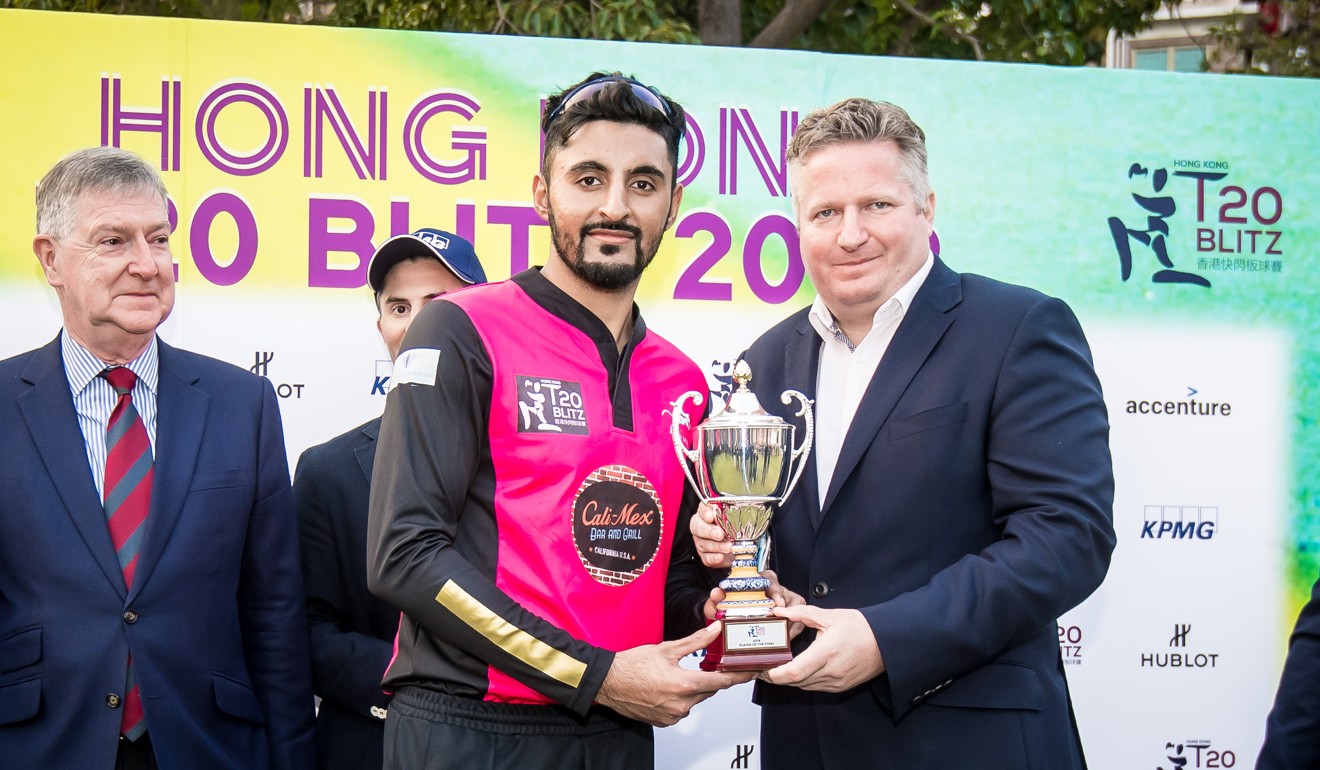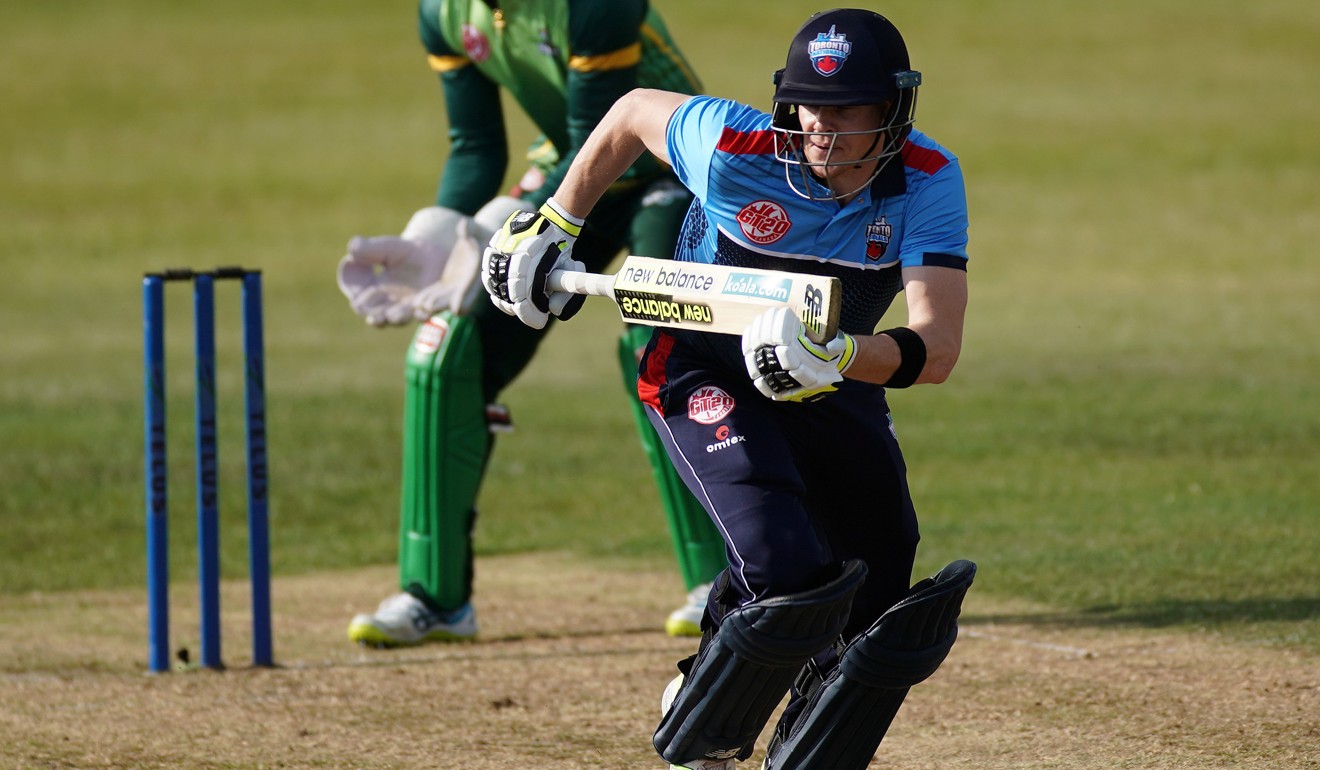
Marginalised by ICC, will Hong Kong’s top players choose a T20 career over the national team?
Babar Hayat is making a name for himself in the Canada global league, playing alongside some of the best players in world cricket
Hong Kong captain Babar Hayat is thriving among elite company at the Global T20 Canada league being played in the North American country. He is 10th on the list of best batsmen as of Friday, having hit 93 runs in three innings for the Vancouver Knights and one man of the match performance.
It’s not the first time Babar has lit up an international tournament, having provided fireworks with the bat in Nepal’s T20 tournament and a T10 event in the Middle East.
His 65 off 33 balls in the victory against Winnipeg Hawks on July 1 was typical Babar – confident, sublime timing and finding boundaries with ease. If only he can do the same for Hong Kong at important games.
Then again, is there deeper meaning to all this? With world governing body ICC effectively marginalising associate members such as Hong Kong, do we really need to aspire at national level when there’s nothing really to aspire to? And is a T20 circuit the future for associate players who can never dream of playing in a World Cup but can realistically look to professional events around world to mix it with the best?
Babar and fellow Hong Kong batsman Nizakat Khan are taking part in the Canada tournament, having made contacts at the Hong Kong T20 Blitz and helped by agents to secure spots on what is becoming an increasingly lucrative world T20 circuit.
Hong Kong coach Simon Cook has endorsed his players taking part in overseas events. Using basic logic, Cook feels that players such as Babar, Nizakat and Anshuman Rath playing with and against top players in these tournaments will only help them improve as cricketers and benefit the Hong Kong team.

All three batsman, among others, have contributed much to Hong Kong cricket, scoring plenty of runs at crucial times and helping their team to some notable victories over the past few years. But it’s difficult not to look back at this year’s ICC World Cup qualifier in March and feel a tad short-changed.
Nizakat, himself, admitted it a few weeks after the tournament. “We just flopped. The batsmen the team were relying upon didn’t perform,” said Nizakat, his finger pointing primarily at himself.
At the Zimbabwe qualifier, Hong Kong finished in the bottom two – within the space of a couple of weeks they went from elite one-day status to the second division of associate cricket. The match in which the batsman did score at least some runs resulted in a resounding victory against Afghanistan, with Rath scoring 65, Babar 31 and Nizakat 28.
However, a painful defeat by Nepal ruined Hong Kong’s hopes of advancing to the Super Sixes. And then a loss to Papua New Guinea ensured Hong Kong would lose its one-day status.
Afghanistan, meanwhile, went on to qualify for the Super Sixes by the skin of their teeth and ended up beating West Indies in the final to win the tournament.
The kind of opposition Babar is facing in Canada is superior to that of Nepal or Papua New Guinea. That 65 he scored against Hawks would have really helped against Nepal.
Still, given ICC’s restrictive and elitist policy, it is difficult for associate players to motivate themselves. A football country ranked in the top 20 in the world would fully expect to play in the sport’s ultimate tournament. Not so cricket. The 2019 World Cup will feature only 10 countries because ICC officials felt including more associate members would dilute the quality of the tournament.
Scotland must be scratching their heads at this logic after recently beating world No 1 England in an ODI.

If that wasn’t bad enough, the ICC is seemingly unhappy with all these pesky associate members such as Hong Kong, Nepal and Canada organising quality T20 tournaments that attract the best players.
In fact, ICC is thinking about limiting players from full members countries to only three T20 tournaments a year.
They say the T20 events are corrupting the global cricket ecosystem – an ecosystem that sustains three countries: India, England and Australia and has left the others stranded and without purpose.
So, why should the likes of Babar, Nizakat and Anshuman aspire to play for Hong Kong when Hong Kong, in the greater scheme of things, have nothing to play for?
Thankfully, CHK is continuing to support these players with contracts but they would need to dig deeper in order make up for the loss of funding from the Hong Kong Sports Institute.
Hong Kong’s next assignment is the ACC Asia Cup qualifier in India in August. Cook will hopefully have a full-strength squad with his T20 globe-trotters ready to transfer their circuit form to the national team. Babar’s 65 will be much more appreciated in Hong Kong colours.

